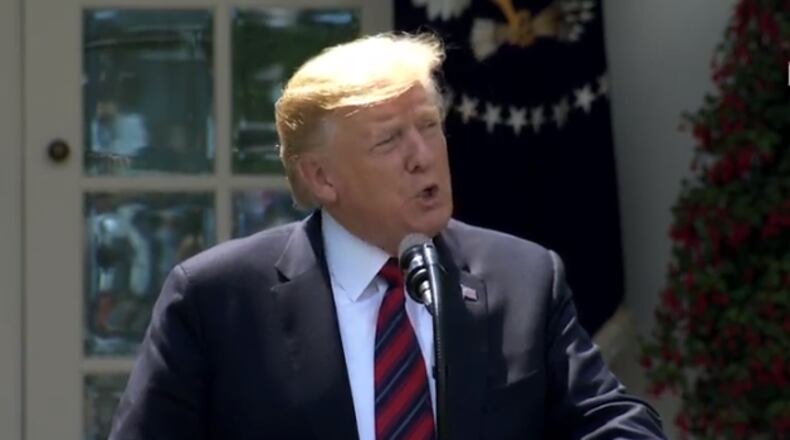The Friday decision by President Donald Trump to lift special tariffs on steel and aluminum imported from Canada and Mexico not only defused a year old trade battle with those two neighbors, but also strengthened the prospects in the U.S. Congress for a revised free trade agreement negotiated by the Trump Administration.
"The biggest hurdle to ratifying USMCA has been lifted," said Sen. Charles Grassley (R-IA), who had helped lead opposition to the tariffs, saying it would prevent the U.S., Mexico, Canada trade deal from being approved by Congress.
Not only will the U.S. drop import duties on steel and aluminum from Canada and Mexico, but those countries will drop retaliatory tariffs against a variety of American exports, which had caused collateral economic damage to a variety of U.S. businesses.
"These tariffs, and the retaliation they caused, have hurt American farmers, manufacturers, businesses and consumers across the country," said the group Tariffs Hurt the Heartland.
"These tariffs are damaging the U.S. manufacturing sector, and particularly downstream U.S. steel and aluminum consuming companies," said the Coalition of American Metals Manufacturers and Users.
Many voices in the U.S. and Canada praised Grassley for helping push the President to drop the 25 percent tariff on steel and 10 percent tariff on aluminum imports from Mexico and Canada, as Grassley and GOP Senators repeatedly made clear to President Trump that a new U.S.-Mexico-Canada free trade deal would go nowhere in Congress until that happened.
"The agreement with Canada and Mexico to lift steel and aluminum tariffs and retaliation without quotas will allow the U.S. to better target China’s unfair trade practices and pave the way for the USMCA," said Rep. Jackie Walorski (R-IN).
"This is great news we’ve reached a deal on Steel and Aluminum," said Rep. Steve Watkins (R-KS). "Kansas exports to Canada and Mexico in 2017 totaled $4.4 billion."
"It is good these tariffs will be lifted," said Senate Democratic Leader Charles Schumer. "I've always said we should be focusing efforts on China — not Mexico, Canada, Europe."
But Democrats have also raised a series of other questions about the trade agreement - which still has not been submitted to the Congress for a vote, even though it was finalized last year.
In the wake of the tariffs announcement, Vice President Mike Pence announced on Friday that he would go to meet the Canadian Prime Minister on May 30.
While this move to ease tariffs will certainly help U.S. farmers and other businesses, there is still great uncertainty involving retaliation by China - in a separate trade dispute sparked by President Trump's aggressive efforts to levy tariffs on American trading partners.
“We actually had a deal and they broke it,” the President said of the Chinese on Friday, referring to last minute demands and changes that Beijing thought it could gain from Mr. Trump.
It did not work.
“I said, 'Can't do that. Sorry, you can't do that,'” the President said in a speech.
About the Author

